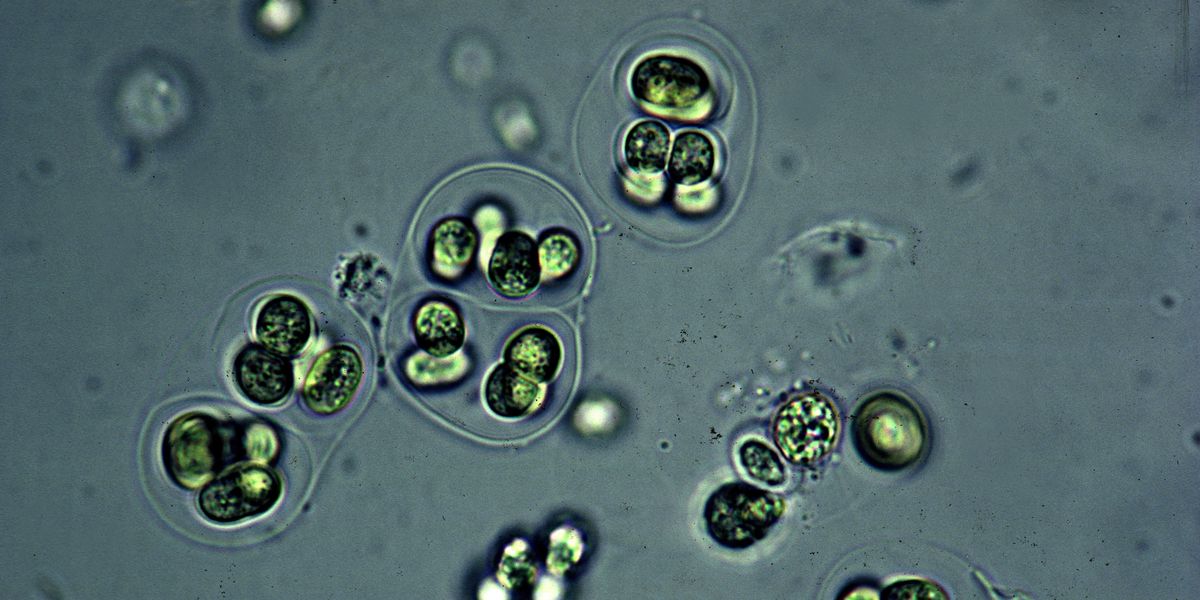Researchers on a quest to understand the origins of life just learned a little lesson about photosynthesis from 1.75 billion years ago.
In a new study published in Nature, a team of researchers claim that microfossils found in the desert of north Australia show off the earliest known signs of photosynthesis. And that could means a better understanding of how all of life could have begun.
These microfossils are remnants of a type of organism called cyanobacteria, which experts believe have been around for as long as 3.5 billion years (though the oldest confirmed fossil examples are from about 2 billion years ago). At some point in their evolution, some varieties of these organisms developed thylakoids—structures within cells in which photosynthesis occurs—which may have allowed them to contribute huge amounts of oxygen to Earth’s atmosphere through photosynthesis in what has become known as the Great Oxidation Event.



Cool stuff, but not really the “origins” of life in the way I was thinking. Cool research on very early life, but not on the origins of all life (in fact, I don’t know if any of my ancestors every photosynthezed…?)
There is also some recent-ish news to find on that front, too. Astronomers have found a few key molecules in some nebula that hint that the ingredients are in many places. In other areas… I don’t remember the timing or discovery exactly, but other scientists successfully mixed up a “primordial ooze” of ingredients, and the right molecules for exceptionally simple life came out. If I wasn’t ignoring work to type this, I’d scrounge up some references, because I kinda’ want to remember how close they got to something functional with the ooze experiment.
Taken all together, it’s looking like the ingredients of life are all over, and it’s more a question of why complex life is not more common. Is the universe largely inhospitable? Is it still just a Great Filters question? Does life have a peak of complexity that cannot make the scifi societies we imagine? Are we still just early in the timeframe of the universe? Life being inevitable makes the universe a more interesting place than otherwise, imo.
When you’re not busy I would love to see a reference to the primordial replication.
Not op, but this looks what they’re talking about.
https://scitechdaily.com/primordial-soup-scientists-discover-new-origins-of-life-chemical-reactions/
Yea, if that’s not it, then it’s an experiment in the same exact vein with the expected results!
It’s neat to see that the basics aren’t as fragile as previously feared.
It’s interesting. I wish they said what time scales the reactions took place in. Like if they knew how to keep coaching it along, how long to go from soup to bacteria.
I’m sure it’s a problem of too mamy variables to answer a question like that. This was only to get the precursors for RNA and such: to show biochem arises from natural chemistry. To get aaaalll the way to bacteria or even viruses is many, many small steps further, and undoubtedly has multiple chemical paths.
Yes. Tue universe is inhospitable and the relative climate stability we have enjoyed for 10,000 years or so is quickly coming to an end.
I believe that climate stability has a lot to do with it.
I had an uncle that photosynthesized but he unfortunately passed in an accident while my other uncle, who could anaerobic respirate, was drunk driving.
Yeah, as usual, the headline about the scientific discovery is misleading to bait clicks.
There’s more to life than just your ancestors.